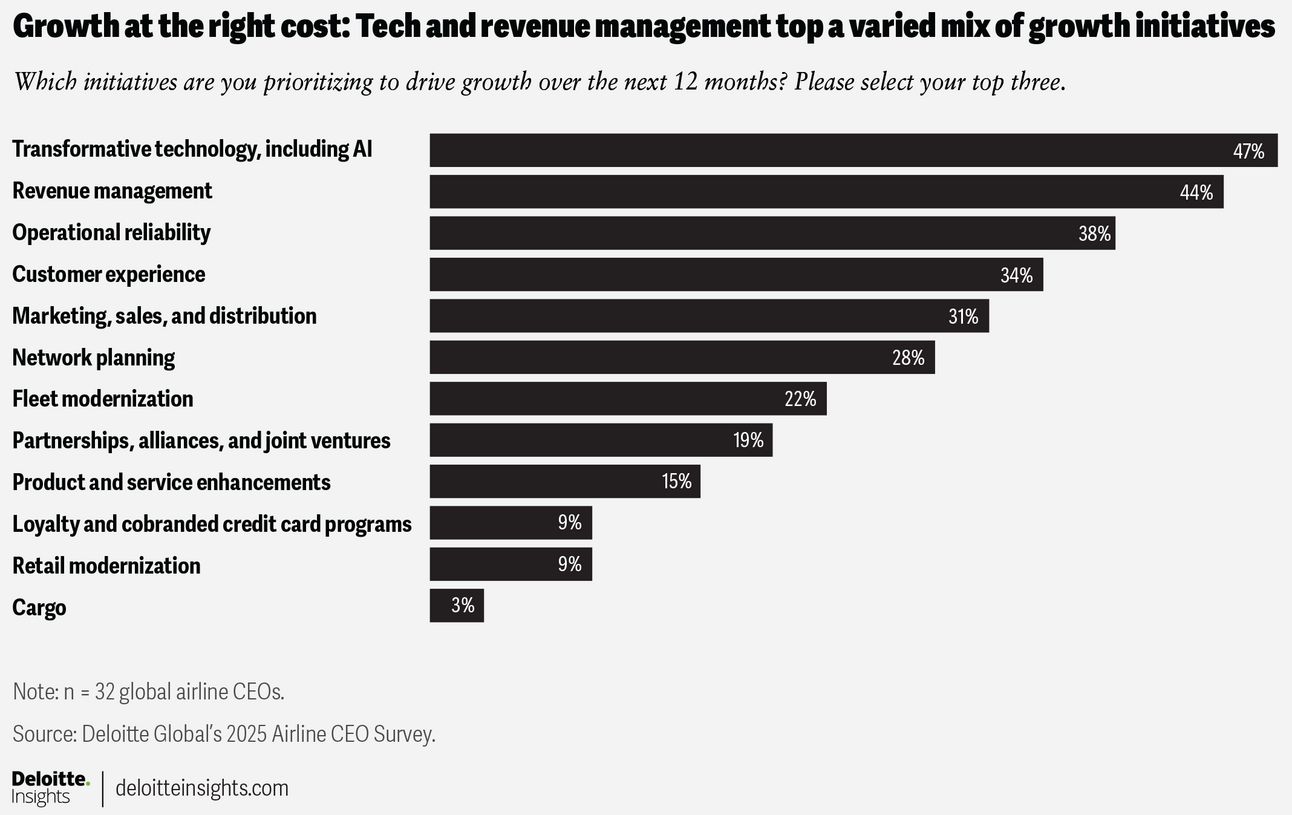- The Galley
- Posts
- What visiting Oman can teach us about hospitality
What visiting Oman can teach us about hospitality
In partnership with

There’s a growing recognition among global airlines that legacy systems are limiting service innovation and operational agility. But a recent trip to Oman taken by Fernando Moreira, chief experience officer of IFCS, highlights the magic that can happen when you marry the right technology to a culture of customer service.
As passenger expectations rise and competition intensifies, especially in premium markets, we’re finding that Gulf carriers are setting a new benchmark by embedding tech-enabled service excellence throughout the entire travel experience.
Let’s talk about it.

Gulf region dispatch: When hospitality meets technology
You can tell a lot about a culture from the way you're treated in a restaurant.
During a recent business trip to Oman, I walked through the buffet area of my hotel nearly every night on my way to meet a colleague. One evening, the chef stopped me. “I see you walk through here all the time,” he said, “but you’ve never had dinner with us.”
I explained that my friend’s wife wasn’t into seafood, and it was seafood night. He shook his head: “No, I’m saying there’s no problem. Whatever she wants, I’ll make.” And he meant it. That night, she enjoyed a personally prepared dinner of pasta and short ribs, overseen by the chef himself. No extra charge, no fuss.
In the Gulf states, that kind of service — authentic and genuinely guest-focused — goes beyond good hospitality. It’s a cultural operating system. Whether it’s the hotel concierge, the Uber driver, or the flight attendant, there’s a deep, ingrained commitment to service excellence.
What struck me on my month-long trip through the region was how that ethos is now being paired with a growing appetite for technology in airline catering. The biggest carriers in the Middle East have already set global standards for in-flight service. But behind the scenes, they’re recognizing the value of upgrading technology in order to take their customer service and efficiency to the next level.
Airlines globally are handicapping themselves by running catering operations with 25-year-old technology. Excel-based workflows are still the norm, as are single-user bottlenecks where one person manually inputs data for an entire flight’s loading plan. That is no longer an experience anybody wants or needs to endure. Technology allows for growing flexibility and multiple users.

INDUSTRY INSIDER
It’s a busy time for the executive chefs at the big airlines. United is rolling out a refresh of its onboard meals and beverage services starting this month. The revamp includes the return of warm snacks on select flights and the debut of the popular Aperol Spritz cocktail. Meanwhile, American Airlines is also overhauling its in-flight menu this summer, with a variety of courses inspired by European cuisine. And Alaska Airlines is launching a new concept called "Chef’s (tray) Table," a First Class dining program designed by celebrated chefs throughout the West Coast.
Severe allergic reaction on flight sparks global concerns
Singapore Airlines is being sued after a pediatric doctor suffered a life-threatening allergic reaction on a Business Class flight and the plane was forced to make an emergency landing. Despite informing the airline of her allergy to shrimp, the passenger was served a meal containing the shellfish. The incident is raising worries over whether carriers are doing enough to ensure food safety in the air. [TTW]
What travelers really want to eat inflight
Airlines are tripping over themselves to serve Michelin star-quality food at 35,000 feet, but what passengers actually want might be a lot more simple—comfort foods like a great cheeseburger and dumplings, for instance. “It shouldn't surprise us that food that transports well for us by delivery services and takeout would work really well in the sky,” says aviation expert Paul Tumpowsky. [Travel & Leisure]

A word from our partner
Airlines face major challenges in coordinating in-flight catering, as miscommunication between teams can lead to loading errors, delays, and wasted resources. Many still rely on outdated systems like printed documents or emails, which make real-time collaboration difficult.
Modern in-flight catering software streamlines operations by improving communication, reducing errors, and ensuring that meal provisioning runs smoothly—saving both time and money.
IFCS Aviation Galley Planner is the easiest way to monitor and control the operational functions related to inflight catering, menu planning, and galley loading.

TECH CHECK
Every airline is trying to figure out how to take advantage of the AI revolution to enhance the passenger experience and/or make operations more efficient. But some industry experts question whether the airlines should be developing AI technology on their own. Would they be better off turning to third-party software platforms for this expertise? “Diverting focus to build an internal AI program can lead to financial strain, delayed adoption and lost competitive advantage,” argues one tech CEO. [AviationWeek]
‘Game-changing AI’ leads to big cuts in delays for BA
One airline that is going headfirst into AI is British Airways, which reported its best on-time performance on record at Heathrow Airport as a result of implementing the technology. BA is now less likely than any other carrier to have flights canceled or delayed at Heathrow. Its CEO is giving credit to the use of AI and the addition of 600 new staff at its London hub. [Financial Times]

The One Chart You Need to Know

Amid continued uncertainty, airline CEOs say they are focused on “maintaining financial discipline while strategically investing in technology, people, and a more resilient future,” according to Deloitte Global’s 2025 Airline CEO Survey. When asked which initiatives they would be focusing on to drive growth, CEOs identified “transformative technology, including AI” as their top priority. Read the full report here.

We want your feedback!
What stories would you like to see covered in The Galley? What trends are on your radar?
Reach out to [email protected] with your questions / comments / feedback.


